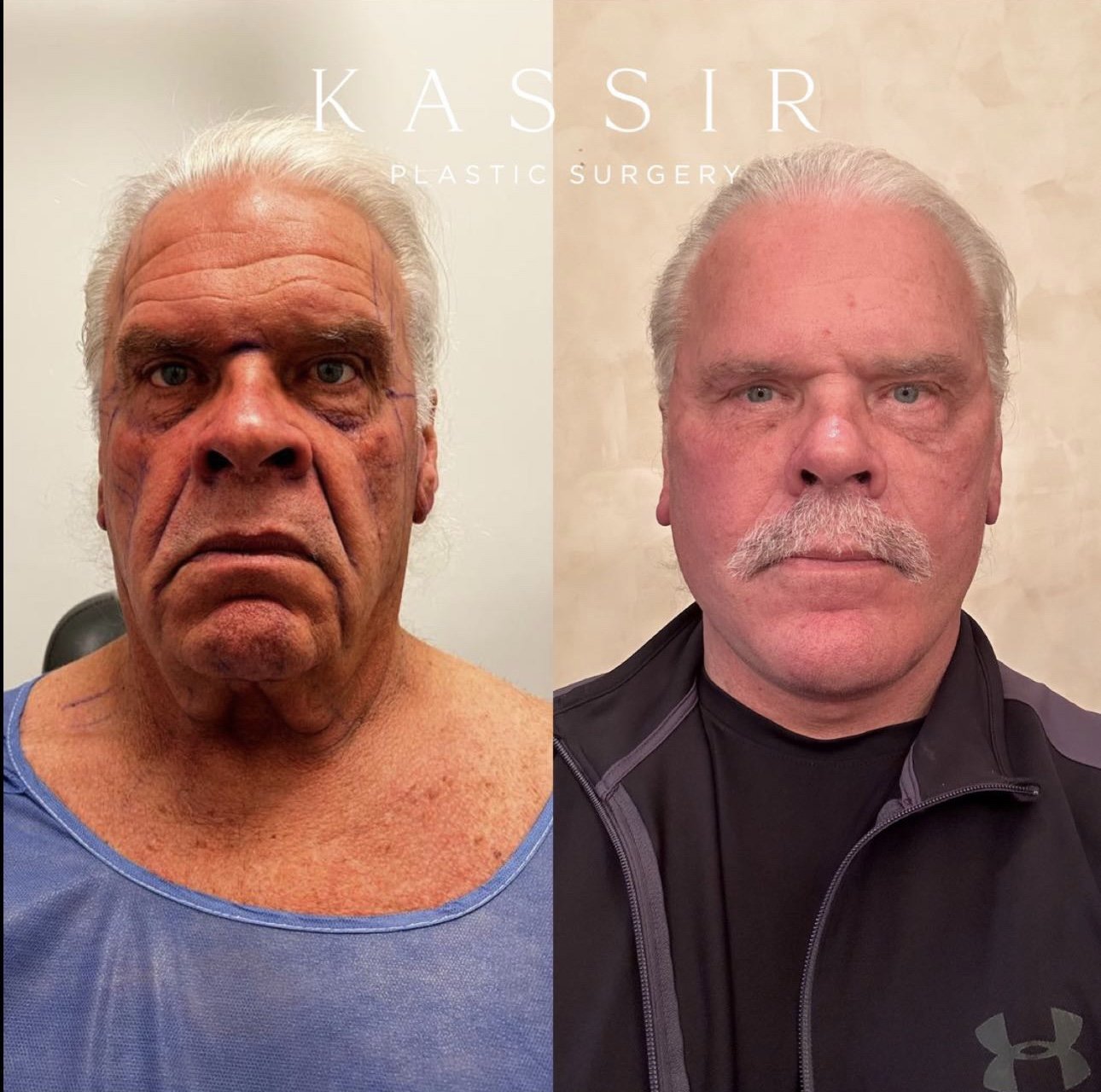Plastic Surgery Rancho Cucamonga: Boost Your Confidence with Custom-made Aesthetic Therapies
Plastic Surgery Rancho Cucamonga: Boost Your Confidence with Custom-made Aesthetic Therapies
Blog Article
Exploring the Emotional and Social Aspects That Drive People to Consider Aesthetic Surgical Procedure as a Means of Renovation
The choice to go after cosmetic surgical treatment usually extends past simple appearances, intertwining with social and emotional dynamics that warrant comprehensive exam. Factors such as self-confidence, prevalent social elegance standards, and the pervasive influence of social media sites converge to shape specific inspirations for medical enhancement. As these influences become progressively prominent, understanding the underlying social and psychological contexts is vital. What continues to be to be explored is the extensive influence these factors have not just on individual identification but also on broader societal standards and worths bordering elegance and acceptance.
The Role of Self-Esteem
Self-worth dramatically affects an individual's decision to go after cosmetic surgical procedure. Individuals with low self-esteem commonly view themselves in a negative light, leading to sensations of inadequacy concerning their physical appearance. This negative self-perception can drive them to look for medical interventions as an approach of improving their self-image. The need for renovation in one's appearance is regularly connected to an idea that such changes will certainly boost their total self-worth and self-confidence.

Ultimately, the role of self-confidence in the decision-making procedure relating to plastic surgery highlights the complicated interaction between body image, personal contentment, and mental health and wellness. Understanding this connection is important for medical care specialists to make certain that patients are making informed decisions rooted in sensible assumptions and emotional wellness.
Societal Appeal Standards
Influenced by prevalent media representations and cultural narratives, societal beauty requirements play an essential role fit individuals' perceptions of their own bodies. These requirements are commonly defined by an idyllic kind of charm that highlights characteristics such as slimness, youthfulness, and symmetry. As these perfects are continued with various channels, including marketing, movie, and television, individuals often internalize these messages, bring about frustration with their natural appearance.
The ramifications of these societal standards prolong beyond aesthetic choices; they can impact self-confidence, mental wellness, and social relationships. People who regard themselves as dropping short of these standards might experience feelings of insufficiency, motivating a need for plastic surgery as a way of attaining societal authorization. This quest is typically fueled by the idea that satisfying these perfects will certainly improve not just physical appearance however likewise social standing and individual fulfillment.

Impact of Social Media
The influence of societal elegance requirements is more magnified by the rise of social media systems, where curated photos and idealized representations of charm are common. Individuals are continuously revealed to filtered and edited photos, which commonly portray unattainable physical qualities. This direct exposure cultivates a culture of contrast, leading people to assess their own appearance versus these often unrealistic criteria.
Social media influencers and stars often advertise aesthetic procedures, normalizing the concept that surgical improvements are a practical means for achieving social ideals (plastic surgery rancho cucamonga). The exposure of these improvements can develop a perception that going through plastic surgery is a standard method, therefore affecting people to take into consideration similar interventions as a like this path to improved self-confidence and social acceptance
In addition, the interactive nature of social media enables immediate feedback via likes and remarks, additionally enhancing the need to satisfy popular beauty standards. Such communications can aggravate sensations of insufficiency and drive people toward cosmetic surgical treatment as a method of getting validation. Ultimately, social networks plays an essential function fit understandings of beauty, which dramatically influences the decision-making procedures surrounding cosmetic surgery.

Cultural Viewpoints on Look
Across different cultures, assumptions of appearance are deeply rooted in historical, social, and financial contexts, forming people' sights on beauty and desirability. In several societies, appearance functions as a significant pen of identity, influencing social standing, expert opportunities, and individual partnerships. For instance, in some societies, light skin is often connected with wealth and advantage, while others might glorify darker complexion as symbols of strength and credibility.
Moreover, typical appeal standards are frequently continued through social narratives, media depictions, and family affects, resulting in differing suitables throughout different areas (plastic surgery rancho cucamonga). In Western cultures, the focus on young people and fitness typically drives individuals towards cosmetic improvement, while in specific Eastern cultures, more subtle adjustments lined up with typical appearances might be preferred
Globalization and the proliferation of electronic media have better made complex these dynamics, creating a hybridization of beauty suitables that goes beyond geographical boundaries. dig this As people increasingly navigate these social narratives, the stress to comply with specific appearance criteria can lead to the need for cosmetic surgical procedure, reflecting a complicated interaction of individual ambitions and cultural worths. Recognizing these social point of views is important in resolving the motivations behind plastic surgery considerations.
Mental Influences of Cosmetic Surgical Procedure
Numerous individuals seeking cosmetic surgical procedure record experiencing extensive mental influences that can dramatically alter their self-perception and emotional wellness - plastic surgery rancho cucamonga. The desire for physical enhancement frequently stems from underlying issues such as low self-worth, body dysmorphic disorder, or societal pressures regarding appeal criteria. For some, the immediate post-operative stage can cause a temporary increase in positive self-image and contentment with their appearance, fostering a sense of empowerment
Nevertheless, these positive sensations may not be enduring. Research study indicates that while some individuals experience improved self-esteem, others may encounter elevated stress and anxiety or depression if their assumptions are not fulfilled. This inconsistency can occur from unrealistic ideals perpetuated by media depiction and social narratives surrounding beauty.
In addition, the psychological ramifications of cosmetic surgical procedure extend beyond the individual. Relationships with household and pals may be stressed as social characteristics shift, causing feelings of seclusion or alienation. Eventually, the psychological impacts of plastic surgery are complicated and diverse, needing mindful factor to consider by both potential patients and health care service providers to make certain educated decision-making and sensible expectations.
Final Thought
Finally, the choice to seek plastic surgery is considerably influenced by a mix of self-confidence concerns, social beauty criteria, and social point of views on appearance. The pervasive reach of social media sites even more worsens these pressures, advertising impractical ideals that individuals frequently make every effort to achieve. Recognizing these psychological and social variables is essential for attending to the inspirations behind cosmetic surgical treatment, highlighting the demand for a more nuanced conversation surrounding appeal and self-acceptance in modern culture.
The choice to seek cosmetic surgery usually extends past mere appearances, intertwining with mental and social dynamics that merit extensive assessment. Inevitably, social media plays a pivotal role in forming perceptions of beauty, which considerably impacts the decision-making processes surrounding cosmetic surgical procedure.
As people significantly browse these cultural stories, the pressure to adjust to certain appearance standards can lead to the desire for cosmetic surgical procedure, showing a description complicated interplay of individual goals and cultural values.In conclusion, the choice to go after cosmetic surgery is substantially affected by a mix of self-worth issues, social beauty standards, and social point of views on appearance. Understanding these social and emotional elements is vital for dealing with the inspirations behind cosmetic surgical procedure, highlighting the need for an extra nuanced discussion bordering beauty and self-acceptance in modern society.
Report this page